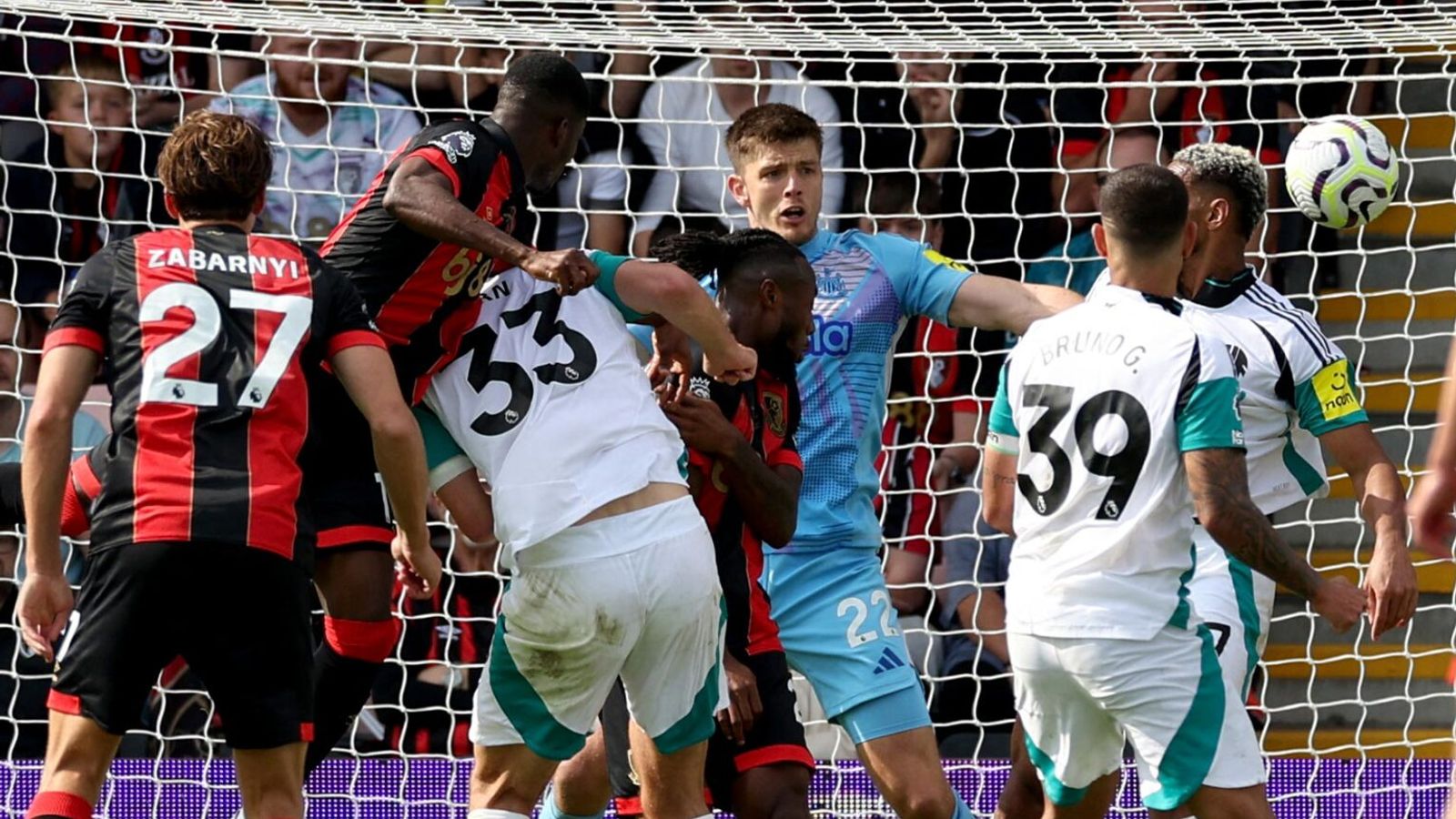Howard Webb believes Bournemouth’s disallowed winner against Newcastle last month should have been allowed to stand as there was a “lack of conclusive evidence” to rule it out.
Dango Ouattara headed in what looked like a winning goal from a corner in stoppage time but after seeing the ball had struck the upper arm area of the Bournemouth forward, VAR Tim Robinson told on-field referee David Coote to rule the goal out, without an on-field review.
As per the International Football Association Board (IFAB) rules, handball is when the ball strikes a player below the armpit. But Webb – chief refereeing officer of the Professional Game Match Officials Limited – believes the on-field decision by the referee should have stood as it contravenes with a new policy the PGMOL have introduced called ‘Referee’s Call’.
Asked if the decision to disallow the Bournemouth goal was harsh, Webb said on Match Officials Mic’d Up: “I agree. The referee’s on-field call is ‘goal’ and the officials on the field didn’t see any reason to disallow this goal.
“We know all goals are checked by the VAR to see if there’s ay reason why the goal can’t be awarded. One of those reasons is if the ball directly hits the attacker’s arm and goes directly in the goal and scores immediately.
“In this situation, the ball strikes Ouattara somewhere [in the] shoulder, upper arm area. It’s hard to be totally conclusive as to exactly where.
“The VAR looked at it and decided, in his professional opinion, that it hits the area of the arm that has to be penalised below the bottom of the arm pit. That’s the importance reference point. I don’t think that’s conclusive enough to intervene.
“Equally, if the goal had been disallowed by the officials for handball, I don’t think there’s evidence to say there’s no handball. So it goes back to ‘Referee’s Call’. It’s an important concept. And for those factual matters, you need evidence that’s very clear that the on-field call is wrong. I don’t think we have it here.
“In the absence of real conclusive evidence, we want the VAR to stay out of that and not get themselves involved. Even though that could be a handball offence.”
What is Referee’s Call?
At the beginning of Match Officials Mic’d Up, Webb announced that the PGMOL are using a new term called ‘Referee’s Call’ – which is a similar system to ‘Umpire’s Call’ in cricket.
The idea is a review on how VAR is used in the Premier League, with the technology only intervening when there is clear evidence to make a decision.
“We know that the term ‘clear and obvious’ has been talked about a lot. We wanted to give emphasis to the on-field decision made by the referee,” said Webb.
“The referee has a call to make, that’s important when they’re determining whether or not an offence has been committed.
“The game is played in shades of grey with subjective decisions, so what we’ve said to our officials is that the referee’s call will stand unless there’s readily available evidence to the VAR that the call is clearly and obviously wrong.
“It’s a term that resonates because it is used in other sports, like ‘Umpire’s Call’ in cricket where, when there’s doubt, we’ll leave the call on the field as the referee’s call. And so far, I think that’s landed pretty well.
“We’re also looking to not be forensic. We don’t want to be micro-analysing every situation.”
The handball rule: below the armpit, not the sleeve
Webb also clarified what area of the arm constitutes as handball – with the PGMOL chief debunking the misconception that handball constitutes of being ‘below the sleeveline’.
“It’s not the length of the sleeve, it’s actually the bottom of the armpit,” Webb said.
“If you put your thumb up into your own armpit and then put your hand across your arm horizontally with your arm by your side, that and below is handball.
“Anything above it is not because the rational is that you can’t really make yourself bigger with that above part, above the bottom of the armpit.”





